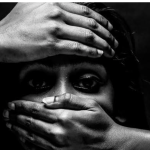On Day 15 of the #16DaysOfActivism Against Gender-Based Violence (GBV), the Comfort Empowerment and Advocacy Foundation (CEAF) amplifies an essential message: “Many women can’t come forward with their experiences of violence because of the shame and stigma around it. Listening to women and believing them is a big step forward towards changing attitudes toward gender-based violence and fostering healing.”
This statement encapsulates a harsh reality that many women face: silence enforced by societal stigma. Addressing this silence and creating a supportive environment where survivors feel safe and heard is a critical step in combating GBV and achieving gender equality.
The Weight of Shame and Stigma
For survivors of gender-based violence, speaking out often feels like an insurmountable challenge. Shame and stigma act as powerful silencing tools, discouraging women from sharing their experiences and seeking justice.
Why Do Women Stay Silent?
• Fear of Blame
Victim-blaming attitudes are pervasive. Questions like “What were you wearing?” or “Why were you there?” place undue responsibility on survivors rather than perpetrators.
• Social Repercussions
In many communities, women who speak out risk ostracism, rejection by their families, or damage to their reputations.
• Lack of Trust in Systems
When legal systems fail to deliver justice or police dismiss reports, women lose faith in the possibility of a positive outcome.
• Trauma and Emotional Burden
Reliving the experience of violence to report or share it can be deeply traumatic. For many survivors, silence feels safer than confronting the pain.
• Cultural Norms
In some societies, discussing gender-based violence is considered taboo, further discouraging women from coming forward.
The Importance of Listening and Believing
Listening to and believing survivors is not only an act of compassion but also a powerful tool for change. Here’s why it matters:
Challenging Stigma
When we listen to survivors, we challenge the stigma that isolates them. By believing their stories, we affirm that they are not to blame for what happened.
Empowering Women
Being heard and believed gives survivors the confidence to reclaim their voices and make empowered decisions about their healing journeys.
Promoting Healing
Sharing experiences in a supportive environment can be a therapeutic step toward recovery. Validation from others can help survivors process their trauma.
Encouraging Others to Speak Out
When one survivor feels safe to speak up, it creates a ripple effect, encouraging others to come forward and challenge cycles of silence.
Strengthening Accountability
Listening to women’s experiences helps expose perpetrators and highlight systemic issues, leading to better prevention strategies and justice mechanisms.
CEAF’s Commitment to Survivors
At CEAF, we recognize the profound courage it takes for survivors to share their experiences. That’s why we prioritize creating a safe and supportive space for women.
Providing a Safe Platform
CEAF offers counseling and support services where survivors can share their stories confidentially without fear of judgment or reprisal.
Raising Awareness
Through workshops, campaigns, and public engagements, CEAF educates communities about the impact of shame and stigma, encouraging more empathetic responses to survivors.
Advocating for Survivor-Centered Policies
CEAF partners with stakeholders to push for laws and policies that prioritize the rights and dignity of survivors, including mechanisms for anonymous reporting and trauma-informed care.
Offering Holistic Support
Beyond listening, CEAF provides practical resources such as legal assistance, shelter, and skills training to help survivors rebuild their lives.
Challenging Myths and Misconceptions
CEAF actively works to dismantle harmful myths that perpetuate stigma, such as the notion that survivors should “prove” their experiences or that certain behaviors invite violence.
A Call to Action: How You Can Help
Ending the silence around gender-based violence requires collective effort. Here’s how you can contribute:
• Be an Active Listener
When a survivor shares their story, listen without interruption or judgment. Avoid questioning their decisions or motives.
• Believe Survivors
Take their experiences seriously. Survivors often face enough doubt and disbelief from others—your trust can make a significant difference.
• Speak Out Against Victim-Blaming
Challenge comments or behaviors that perpetuate blame and stigma. Create a culture where survivors feel supported rather than judged.
• Advocate for Change
Support organizations like CEAF that work tirelessly to combat GBV. Advocate for survivor-friendly policies and accountability for perpetrators.
• Educate Others
Share information about the realities of GBV and the importance of listening to survivors. Education can help shift societal attitudes.
Changing Attitudes, Changing Lives
As we mark Day 15 of the #16DaysOfActivism, let us remember that every survivor who comes forward is taking a courageous step not just for themselves but for countless others who remain silenced. By listening to and believing survivors, we dismantle the barriers of shame and stigma that perpetuate violence.
At CEAF, we stand with all survivors. We commit to amplifying their voices, advocating for their rights, and building a society where no one has to suffer in silence. Together, we can create a culture of empathy, respect, and justice.
Ending violence against women begins with listening. It begins with believing. And it begins with us.




0 Comments